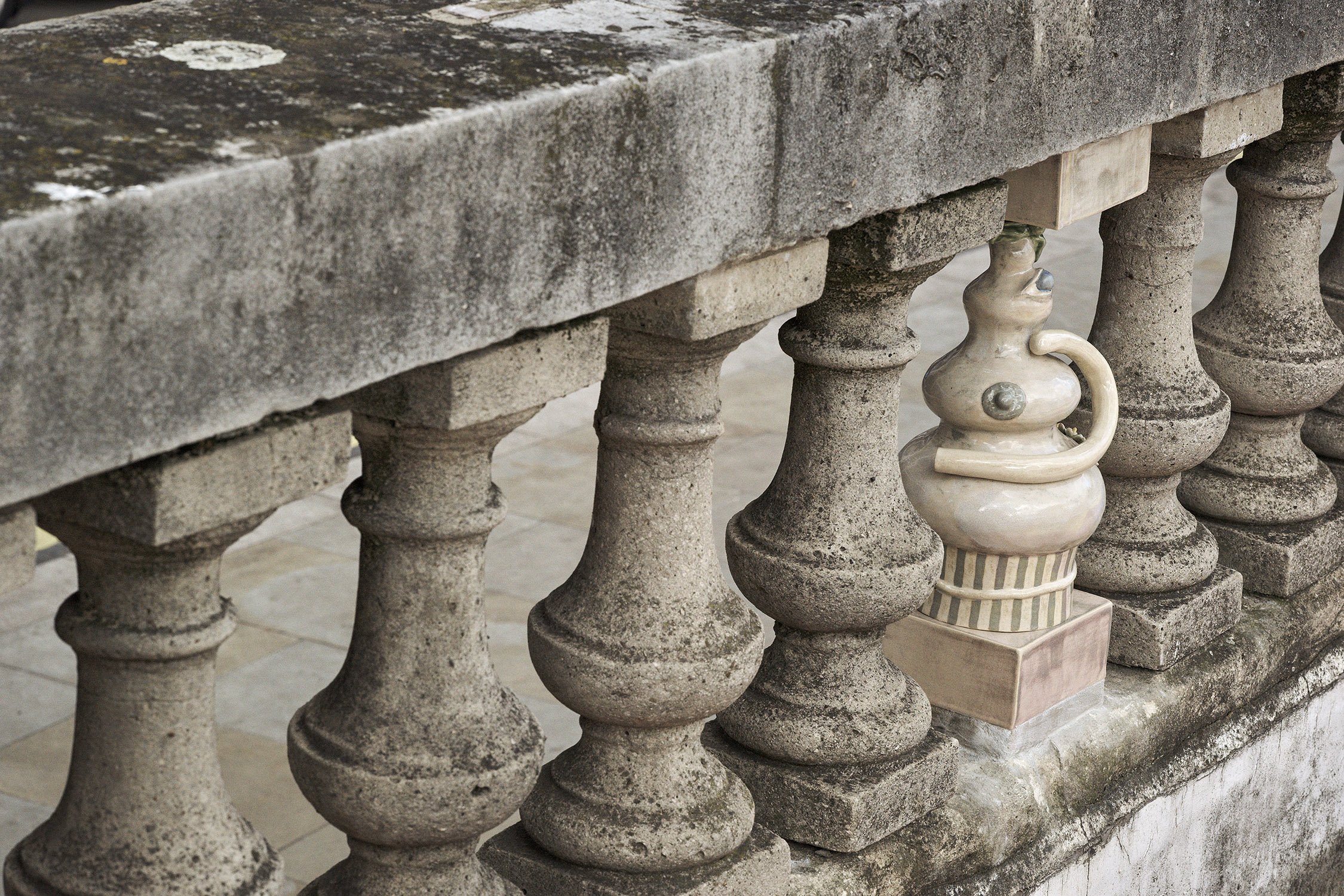
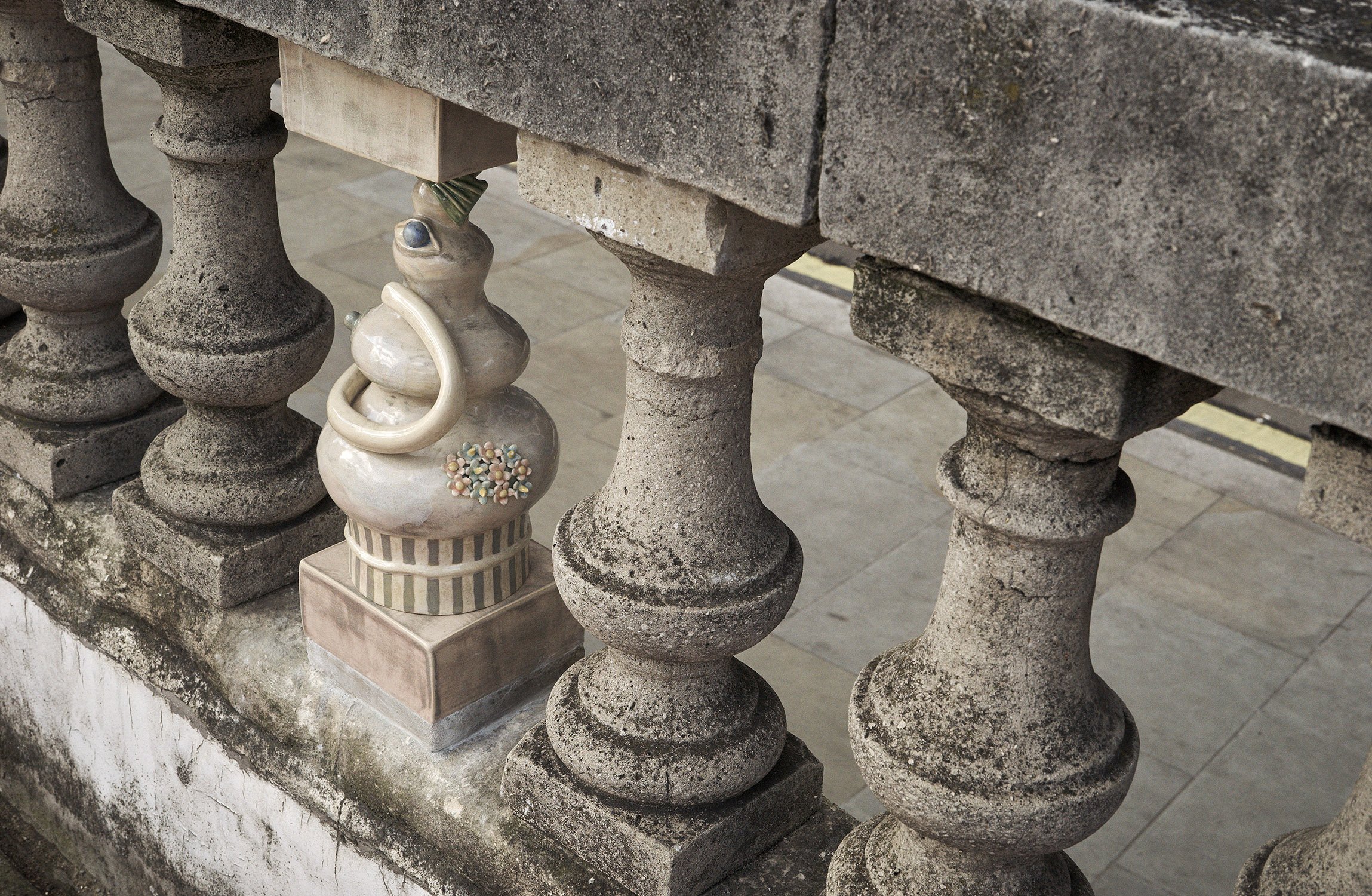
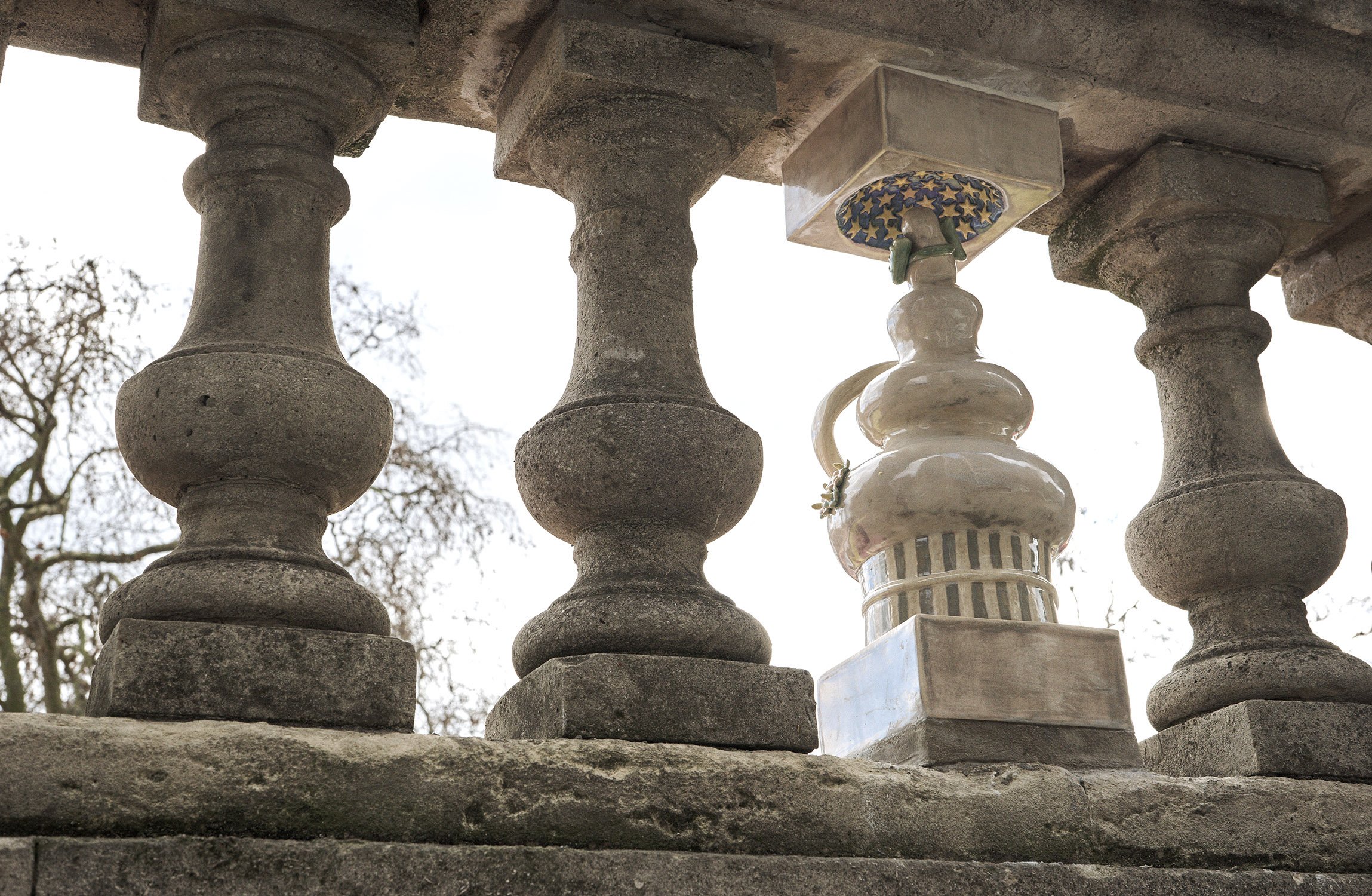
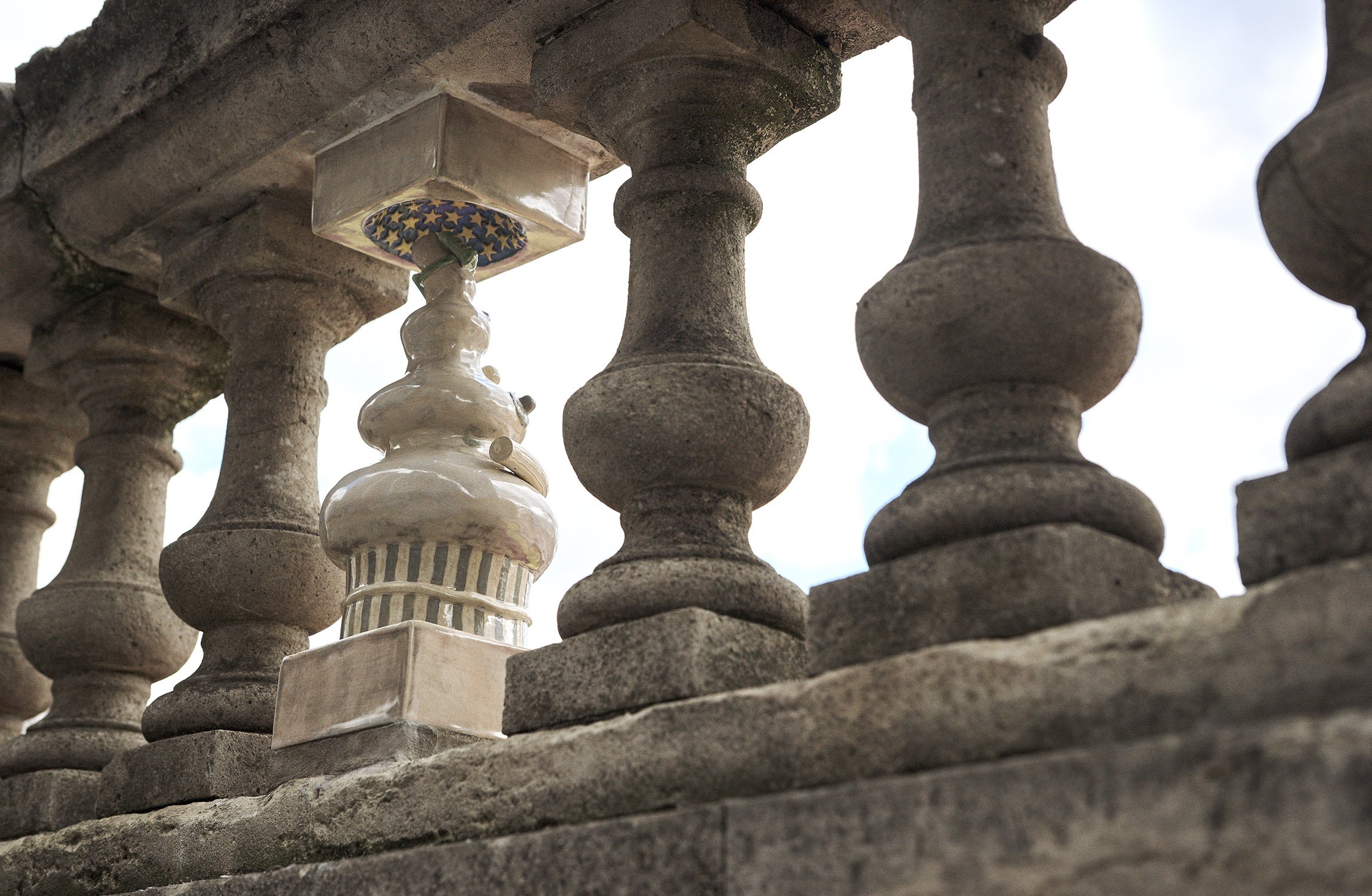
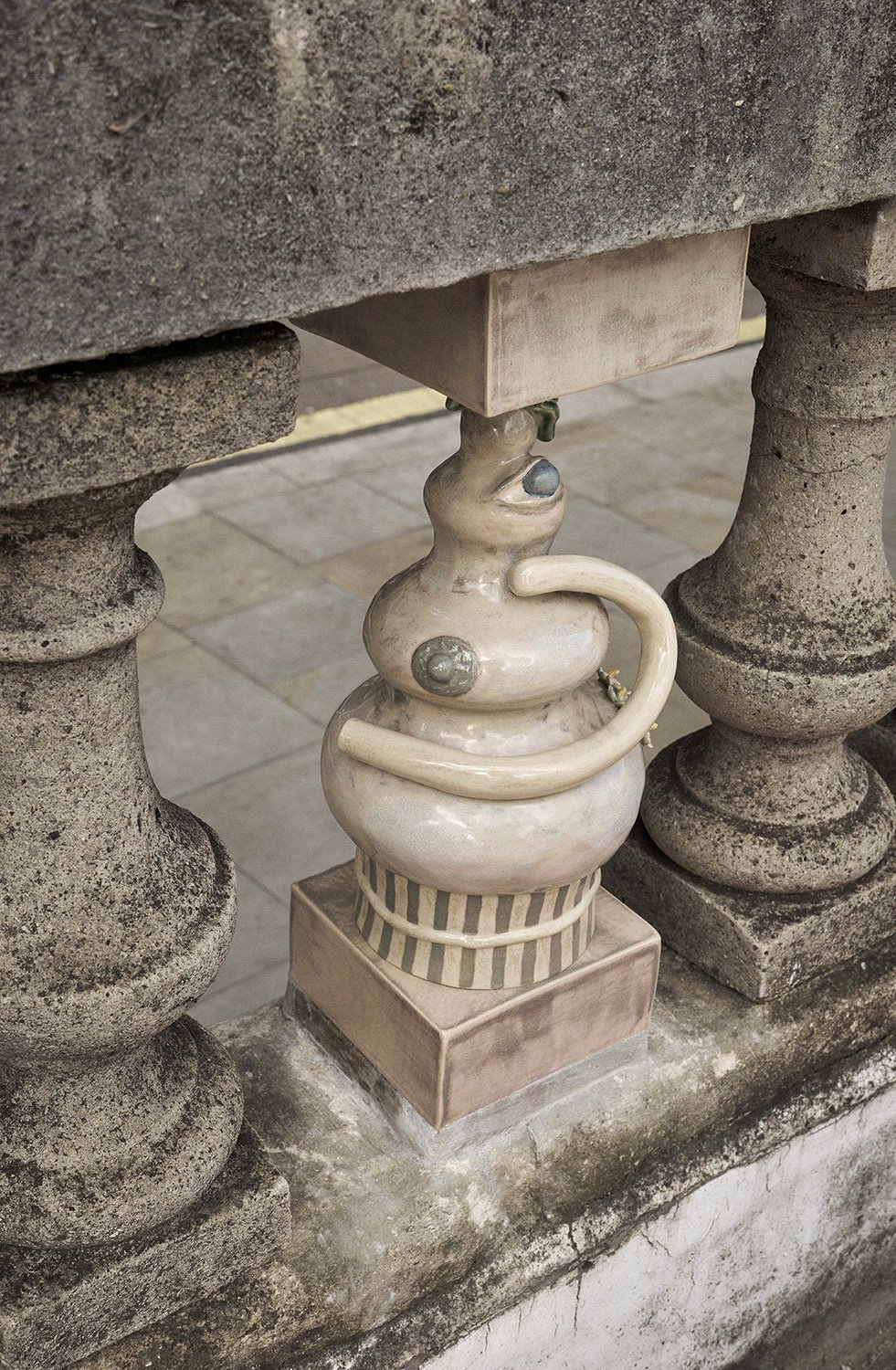
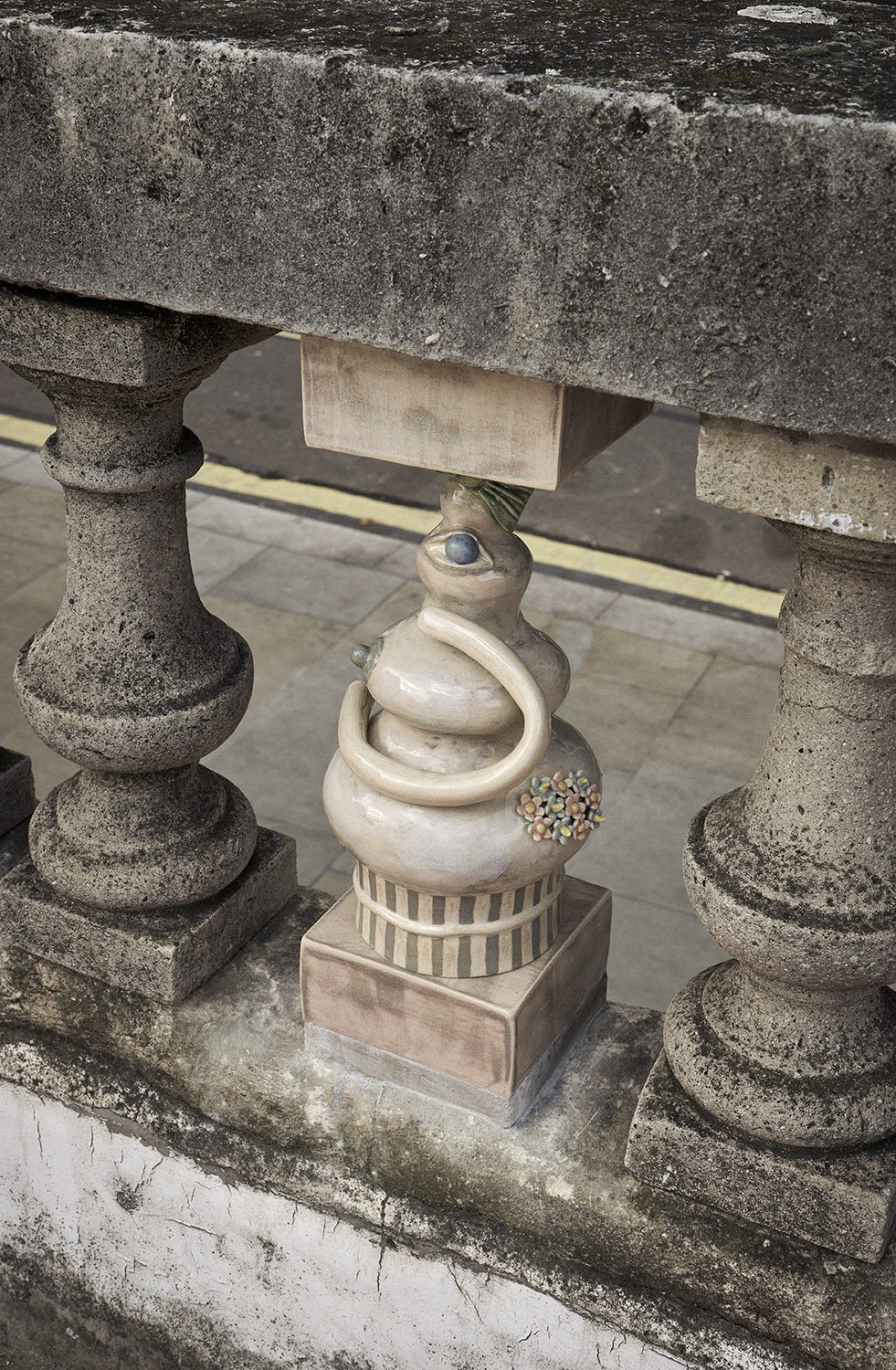
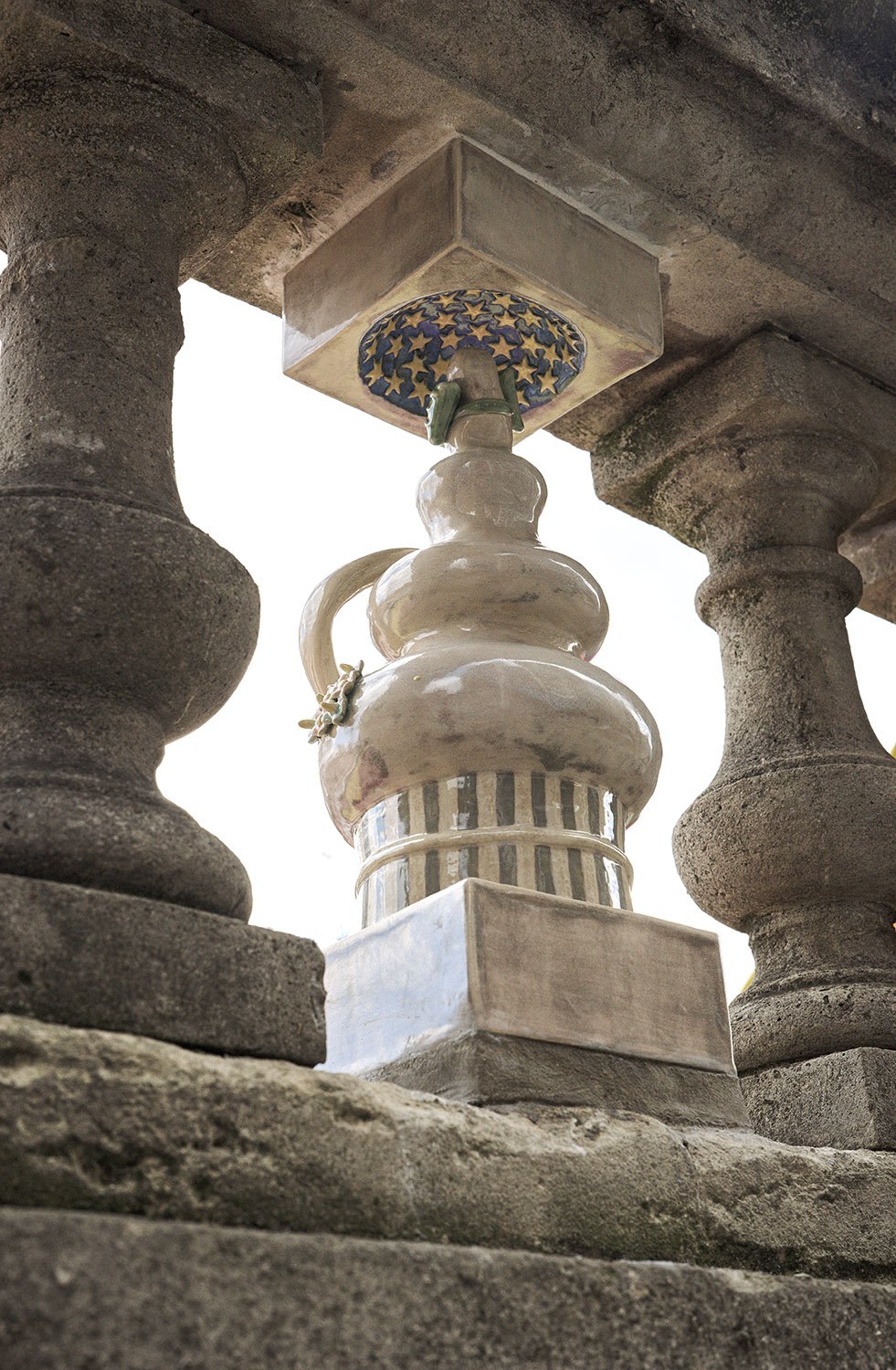
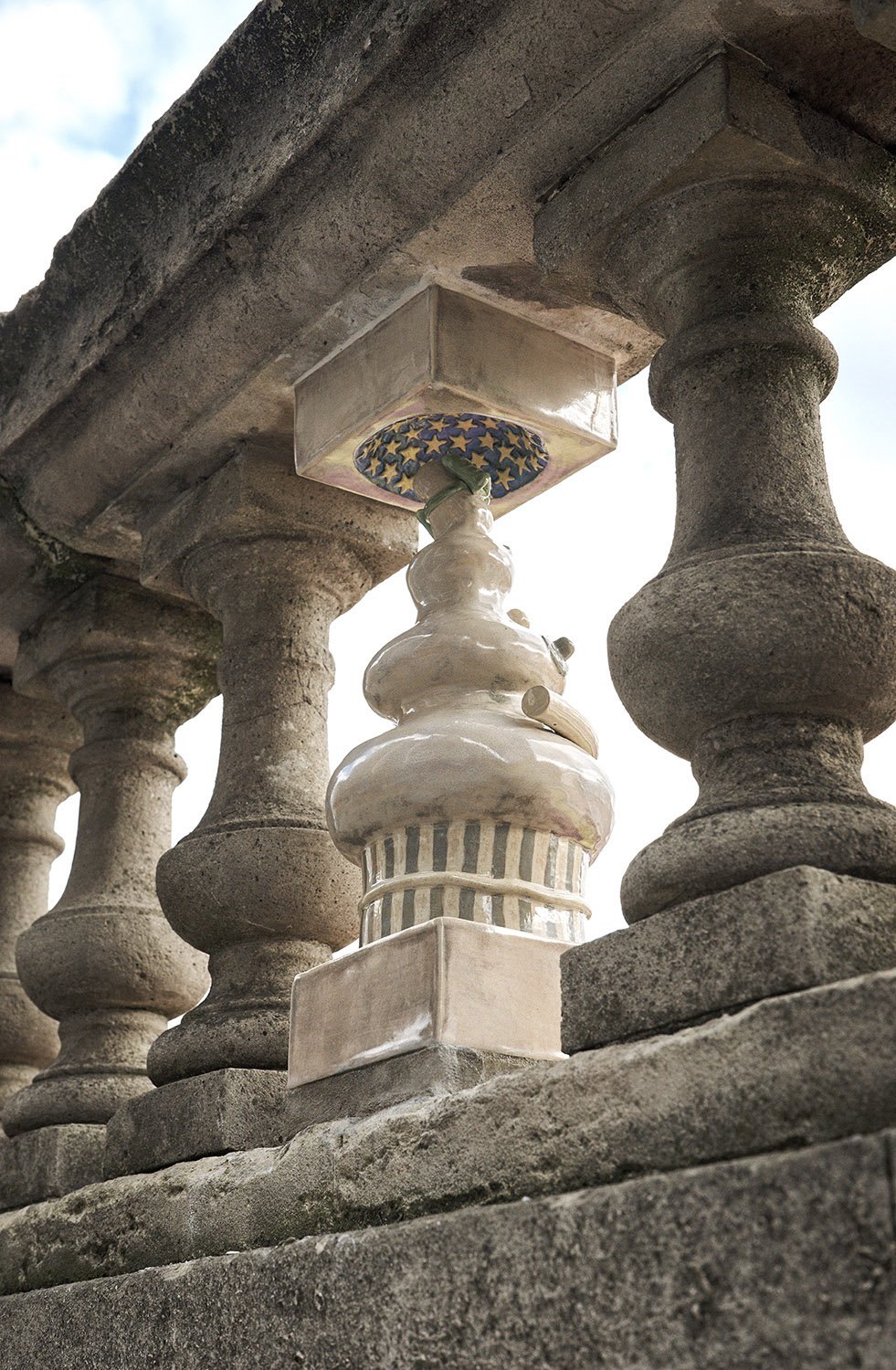


The Artist’s Garden, Temple Station Roof Terrace, Temple Place, London WC2R 2PH
Open daily from dawn to dusk, free and open to all.

PRESS RELEASE
Holly Stevenson | Another Mother
The Artist’s Garden | 15 March 2022 – ongoing
theCoLAB Temple is pleased to present Holly Stevenson’s first public sculpture Another Mother, which now adorns the balustrade that tops the vast half-acre raised space above Temple tube station, that is the Artist’s Garden: a newly created public open space for contemporary sculptural interventions. Stevenson’s work is the most recent addition to a cumulative exhibition featuring Lakwena’s vibrant vision of Paradise, Back in the Air: a Meditation on Higher Ground overseen by Camilla Bliss’s guardian vessels Marshmallow Dew, and its counterpart Fingery Eyes.
Stevenson was first drawn to the romanticism of decay and neglect evident in the structure of Temple Station roof terrace and in particular, its balustrade with its missing balusters. Sir Joseph Bazalgette, the great Victorian engineer, who masterminded the construction of London’s sewage system and saved London from cholera and the ‘great stink’ by constructing the Embankment and Temple roof terrace in c.1865, is rightly celebrated in a monument on the Embankment nearby. But what of those who are always missing from the stories of great men: the wives, mothers and women? Given that of the 1500 statues in London only 50 name specific women, Stevenson saw a space to celebrate the untold, invisible, unpaid but essential support roles of women across the world and throughout history.
The balusters’ curvaceous fecund form (meaning ‘pomegranate flower’) is womanly, they are many, they look the same, they carry out their essential work together, silently, invisibly. The monotonous rhythm of the balustrade tells the story of the repetitive grind of womanhood and motherhood. That rhythm carries the viewer around the perimeter of the Artist’s Garden until it stops: to contemplate a subtle shrine in the form of Another Mother. This robust ceramic work is an ode to Maria Kough Bazalgette (1819 – 1902), who gave birth to 11 children in 15 years, all of which survived into middle age and beyond with one exception. Stevenson’s replacement baluster is a surreal tribute to Maria, who is will go down in history as just Another Mother. Although it hints at the bow in her hair from an early photograph and is adorned with flowers representing her children, it is not a portrait. Taking the form of a caryatid, a sculpted female form used in architecture to decoratively hold up the parapet, it is a semi-abstract shrine to all unsung women. In the zeitgeist, the sculpture is crowned with a concave blue sky with yellow stars, only visible from street level, a tonal nod to women and children forced to flee male oppression.
Stevenson’s Another Mother does not dominate, it does not shout. She was spurred on by a desire to maintain, to improve the neglected perimeter of the site with subtle force. Influenced by the important work of Mierle Laderman Ukeles, whose performances and manifestos took domestic/women’s work (such as scrubbing the steps of the Wadsworth Atheneum of Art in Connecticut, USA) and turned them into what she called ‘Maintenance Art’, an important form of civic or public art. Like Ukeles’, Stevenson’s maintenance work is set to be of long duration, as she embarks on her residency in the Artist’s Hut kept company by a quarrelling family of her sculptures sitting on a garden bench watching her explore what it means to be a baluster and what it means to be a woman.
About theCoLAB
theCoLAB collaborates with inventiveness creating opportunities for artists to use unusual sites as experimental laboratories to realise their most life-affirming work. Operating beyond the confines of the white cube since 2011, theCoLAB conceives and realises its large scale, long term, complex artistic interventions to change the way we perceive, experience and understand the interrelation of space, place, concept and sculpture.
About the Artist’s Garden
Launched in October 2021 on the site of Lord Arundel’s seventeenth century garden and Bazalgette’s Embankment, the Artist’s Garden is a 1400sqm overlooked public space which has become a site for large scale artistic interventions and the Women’s Work exhibition/residency programme, giving female artists opportunities to show work outdoors and in the specially constructed Artist’s Hut. In partnership with Westminster City Council, WSP and with kind permission of TfL.
About Holly Stevenson
Stevenson’s fluid ceramic forms explore Sigmund Freud’s favourite ashtray and last cigar as a bodily metaphor. Her ceramic sculpture diligently embodies the ashtray and cigar as though they were two gendered male and female forms as the artist reconfigures them into a clay language of her own.